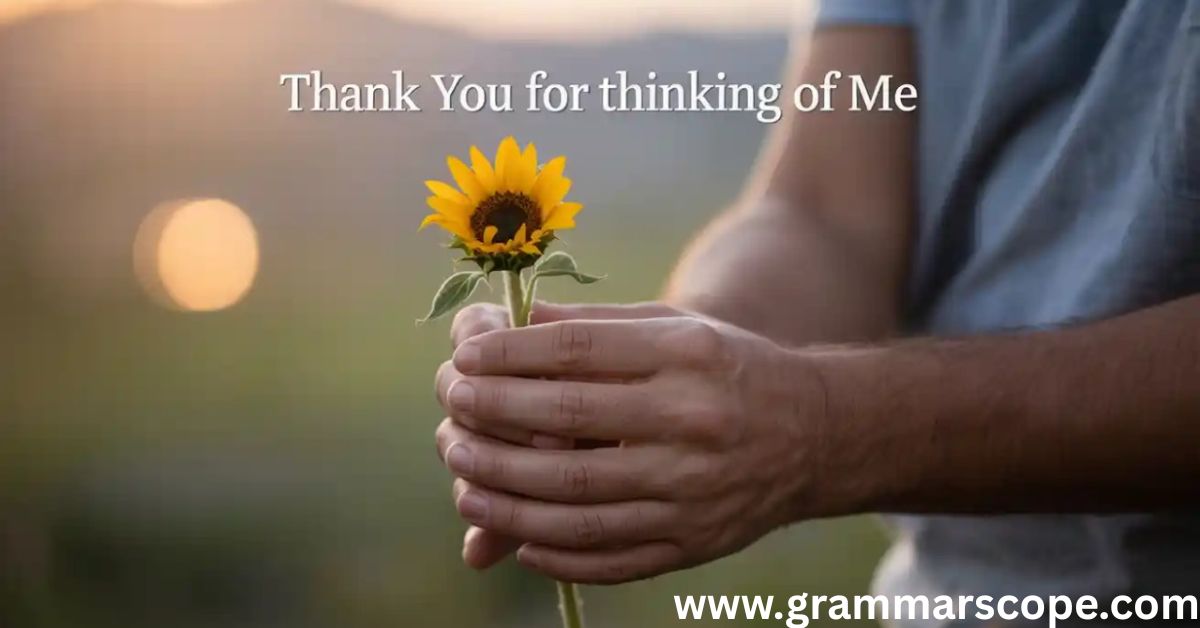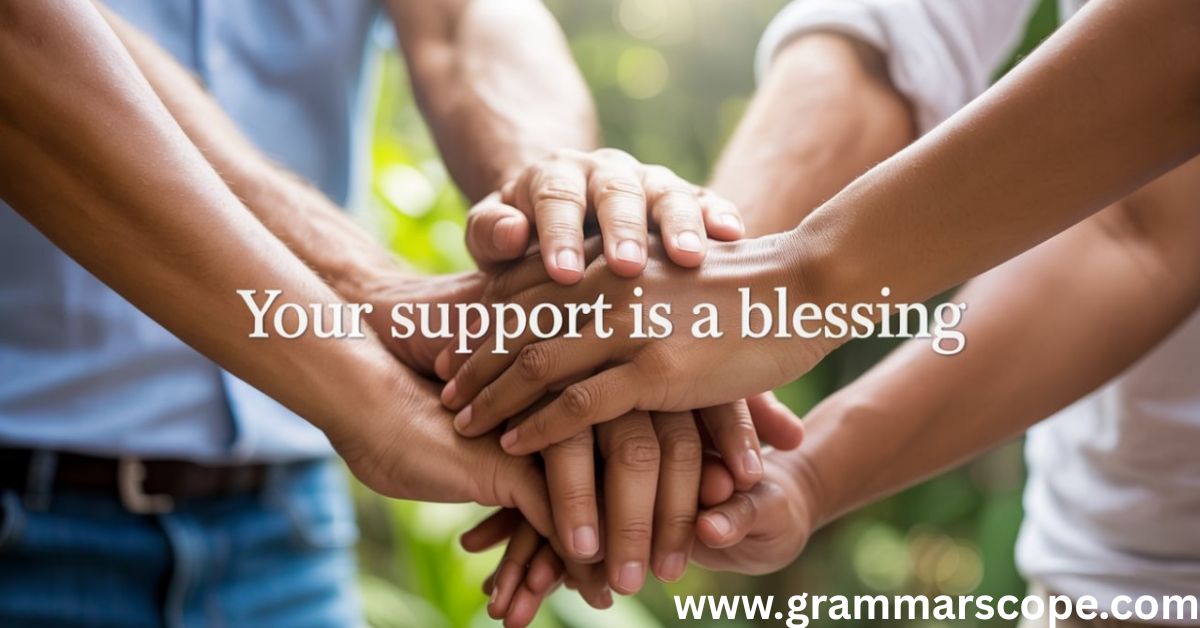Thank you for your concern is one of those timeless expressions that manages to convey both respect and humility in a single breath. But let’s be honest—repeating the same phrase over and over can sometimes sound flat, especially in emotionally nuanced or professional situations. That’s why it’s so helpful to have creative, sincere, and human-sounding alternatives ready to go. Whether you’re responding to a heartfelt message or writing a formal email, variety in your appreciation expression strengthens your voice.
In many contexts—from workplace challenges to personal health updates—people take the time to offer care and attention. A thoughtful response isn’t just courteous; it’s a tool for building strong relationships. The way we say “thank you” can reflect emotional intelligence and help bridge gaps between colleagues, friends, or even strangers.
If you’ve ever wondered about the exact thank you for your concern, or how to acknowledge someone’s message without sounding repetitive, this article will guide you. You’ll not only learn alternative expressions but see how each one fits different tones—whether you’re being thoughtful and professional, lighthearted, or deeply personal.
What to say instead of Thank you for Your Concern
- I Appreciate Your Thoughtfulness
- Thank You for Your Kindness
- I’m Grateful for Your Support
- Your Thoughtfulness Means a Lot to Me
- I’m Touched by Your Concern
- Thank You for Thinking of Me
- Your Concern is Much Appreciated
- I Value Your Consideration
- Your Support Has Been Invaluable
- I Appreciate Your Understanding
- Your Kind Words Are Comforting
- Thank You for Your Encouragement
- I’m Thankful for Your Care
- Your Generosity is Truly Appreciated
- I’m Grateful for Your Consideration
- Your Thoughtfulness Has Made a Difference
- I Appreciate Your Patience
- Thank You for Checking In on Me
- I’m So Grateful for Your Help
- Your Support is a Blessing
- Thank You for Being There for Me
- I Appreciate Your Thoughtful Gesture
- Your Kindness is Greatly Appreciated
- I’m Truly Grateful for Your Effort
- Thank You for Your Help and Understanding
- Your Compassion is Much Appreciated
- I Appreciate Your Prompt Response
- Your Encouragement Means a Lot to Me
- I Can’t Thank You Enough
- Your Help Has Made a Big Difference
What Does “Thank You for Your Concern” Mean?
The phrase thank you for your concern is often used to acknowledge someone’s concern or compassion in times of stress, illness, or uncertainty. It’s a gentle way to show you appreciate their emotional investment in your situation.
But the tone can vary. In heartfelt situations, it’s sincere. In professional contexts, it becomes formal. In rare cases, depending on delivery, it might even be passive-aggressive. Understanding the thank you for your concern meaning helps tailor your response.
Is It Professional or Polite to Say “Thank You for Your Concern”?
Absolutely. It is both professional and polite to say “thank you for your concern,” especially in emails, meetings, or formal messages. It respects the other person’s feelings while keeping your tone grounded.
Still, depending on the context, it might sound too routine or emotionally distant. That’s why this article provides creative alternatives that enhance positive communication and show emotional depth.
Advantages or Disadvantages of Using the Phrase
Advantages:
- Universally accepted in formal and informal settings
- Acknowledges someone’s empathy quickly
- Works well in difficult or sensitive topics
Disadvantages:
- Can sound robotic or overly rehearsed
- May lack emotional richness
- Overused in corporate and email responses
Synonyms for “Thank You for Your Concern” (With Examples)
Each of these expressions includes a scenario, so you can see how to use them in real life.
I Appreciate Your Thoughtfulness

Example (Email):
Hi Elaine, I appreciate your thoughtfulness during this challenging time. Your message really lifted my spirits.
Thank You for Your Kindness
Example (In-person):
Thank you for your kindness, Maria. It meant more than you know.
I’m Grateful for Your Support
Example (Slack message):
I’m grateful for your support during the project crunch, Jake.
Your Thoughtfulness Means a Lot to Me
Example (Text):
Your thoughtfulness means a lot to me, especially today.
I’m Touched by Your Concern
Example (Facebook comment):
I’m touched by your concern, Olivia. Thank you for reaching out.
Thank You for Thinking of Me

Example (Email):
Dear Leo, thank you for thinking of me. Your check-in was exactly what I needed.
Your Concern is Much Appreciated
Example (Formal reply):
Your concern is much appreciated, Mr. Ahmed. I’ll keep you updated.
I Value Your Consideration
Example (Business email):
I value your consideration regarding the meeting shift. Thank you.
Your Support Has Been Invaluable
Example (Career change message):
Your support has been invaluable during my job transition. Thank you.
I Appreciate Your Understanding
Example (Colleague email):
Thanks, Kevin. I appreciate your understanding with the late submission.
Your Kind Words Are Comforting

Example (Sympathy note):
Your kind words are comforting during this loss. I’m deeply thankful.
Thank You for Your Encouragement

Example (Mentorship):
Thank you for your encouragement throughout my application process, Riya.
I’m Thankful for Your Care
Example (Friend):
I’m thankful for your care and friendship, Liam. You’ve been a rock.
Your Generosity is Truly Appreciated
Example (Donor note):
Your generosity is truly appreciated, Mr. Walters. Thank you for your gift.
I’m Grateful for Your Consideration
Example (Scholarship response):
I’m grateful for your consideration and hope to exceed expectations.
Your Thoughtfulness Has Made a Difference

Example (Recovery update):
Your thoughtfulness has made a difference in my healing journey. Thank you.
I Appreciate Your Patience

Example (Client email):
I appreciate your patience while we resolved the issue.
Thank You for Checking In on Me
Example (Casual message):
Thanks for checking in on me, Chloe. It means a lot.
I’m So Grateful for Your Help
Example (Team message):
I’m so grateful for your help on this deadline, Marco. Couldn’t have done it without you.
Your Support is a Blessing

Example (Family message):
Your support is a blessing. Thank you for being there.
Thank You for Being There for Me
Example (Friendship):
Thank you for being there for me, Katie. I won’t forget it.
I Appreciate Your Thoughtful Gesture
Example (Gift reply):
I appreciate your thoughtful gesture—the cookies were delicious!
Your Kindness is Greatly Appreciated
Example (Volunteer thank-you):
Your kindness is greatly appreciated. You make a real difference.
I’m Truly Grateful for Your Effort

Example (Project wrap-up):
I’m truly grateful for your effort in organizing the launch event.
Thank You for Your Help and Understanding
Example (Teacher email):
Thank you for your help and understanding with my extension request.
Your Compassion is Much Appreciated
Example (Medical staff note):
Your compassion is much appreciated. You made a hard day easier.
I Appreciate Your Prompt Response
Example (Customer service email):
I appreciate your prompt response to my inquiry. Thanks, Ella.
Your Encouragement Means a Lot to Me
Example (Coach message):
Your encouragement means a lot to me, Coach Dylan. I’ll keep pushing forward.
I Can’t Thank You Enough

Example (Gratitude):
I can’t thank you enough for your support these past few months.
Your Help Has Made a Big Difference
Example (Support acknowledgment)
Make Your Gratitude Count
The most important part of expressing gratitude is making it personal and professional when appropriate. Rather than using the same words repeatedly, expressing gratitude in a way that reflects the situation adds a layer of sincerity.
Here’s how:
- Choose tone-appropriate phrases
- Adapt to whether it’s formal or casual
- Avoid empty flattery; be specific about the significant impact the person made
This not only helps in acknowledging someone’s concern but also reinforces positive communication and helps you maintain strong relationships across every area of life.
Conclusion
While “thank you for your concern” is polite and safe, it doesn’t always capture the depth of your emotions or the situation. By choosing from these 30 alternative expressions, you can make your message more human, heartfelt, and effective.
Use these variations to reflect your tone, audience, and message. Let your words carry more weight, and keep building those personal and professional bonds one sincere message at a time.

Emma Olivia is an experienced blogger and the creative mind behind Grammar Scope. With a passion for language and years of writing expertise, she crafts engaging, informative content that simplifies grammar and writing tips for readers worldwide. Emma’s dedication to clear communication and love for the written word shine through every article she publishes, making Grammar Scope a trusted resource for language enthusiasts and learners alike.






